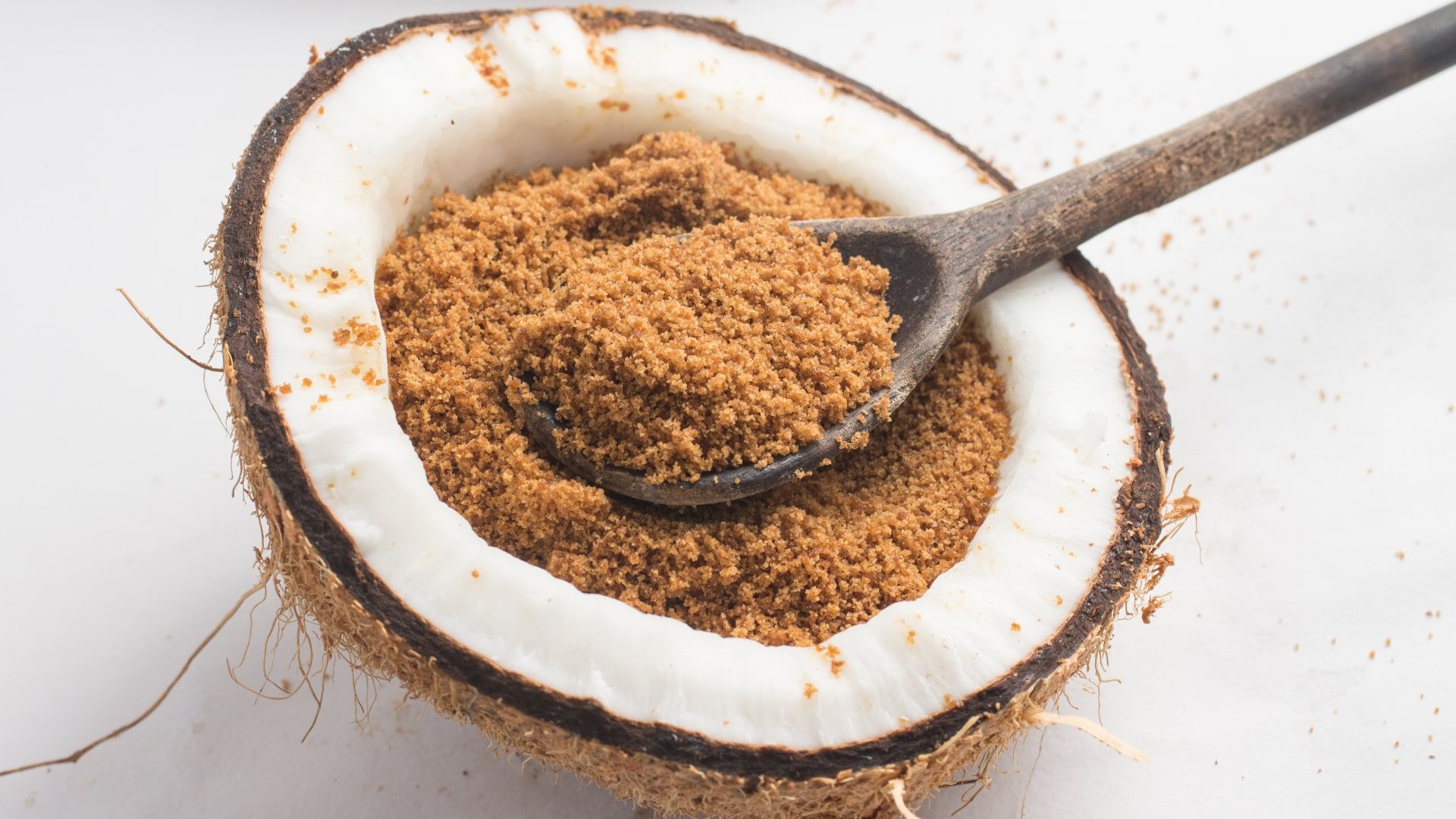
Sugar has been one of the most controversial ingredients in our diet. With the rise in health consciousness, many people are looking for healthier alternatives to refined white sugar — and coconut sugar has emerged as one of the most popular choices. But is it really as healthy as it sounds, or just another marketing gimmick? Let’s find out.
Table of Contents
- What Is Coconut Sugar?
- Nutritional Profile of Coconut Sugar
- Glycemic Index (GI): Is Coconut Sugar Better for Blood Sugar?
- How Does Coconut Sugar Compare to Regular Sugar?
- Health Benefits of Coconut Sugar
- The Other Side: Why Coconut Sugar Isn’t as “Healthy” as It Sounds
- How to Use Coconut Sugar
- Expert Opinion: What Nutritionists Say
- Final Verdict: Healthy Alternative or Big, Fat Lie?
- Healthier Alternatives to Coconut Sugar
What Is Coconut Sugar?
Coconut sugar, also known as coconut palm sugar, is made from the sap of the coconut palm tree. The sap is heated until the water evaporates, leaving behind brown, granulated crystals that look similar to raw cane sugar.
Unlike white sugar, coconut sugar is less processed and retains small amounts of nutrients from the coconut palm.
Nutritional Profile of Coconut Sugar
Coconut sugar contains trace amounts of vitamins and minerals such as:
-
Iron
-
Zinc
-
Calcium
-
Potassium
-
Short-chain fatty acids
-
Antioxidants
It also contains a small amount of fiber called inulin, which may help slow glucose absorption and promote better gut health.
However, it’s important to note that these nutrients are present in very small quantities — not enough to make a big difference in your daily nutrient intake.
Glycemic Index (GI): Is Coconut Sugar Better for Blood Sugar?
One of the major claims about coconut sugar is that it has a lower glycemic index (GI) compared to regular sugar. The GI of coconut sugar is estimated to be around 35 to 54, while table sugar has a GI of about 65.
A lower GI means that coconut sugar causes a slower rise in blood sugar levels — which could be slightly better for diabetics or people trying to manage their weight.
But here’s the truth: even though the GI is lower, coconut sugar still contains almost the same amount of calories and carbohydrates as white sugar. So, if you consume too much of it, your blood sugar will still spike.
How Does Coconut Sugar Compare to Regular Sugar?
| Aspect | Coconut Sugar | White Sugar |
|---|---|---|
| Source | Sap of coconut palm | Sugarcane or sugar beet |
| Processing | Minimally processed | Highly refined |
| Nutrients | Small amounts of minerals | Virtually none |
| Glycemic Index | 35–54 | Around 65 |
| Calories | ~15–20 per tsp | ~16 per tsp |
| Taste | Caramel-like flavor | Sweet, neutral flavor |
As you can see, the calorie difference is minimal, but coconut sugar wins slightly when it comes to nutrient content and processing.
Health Benefits of Coconut Sugar
While it’s not a superfood, using coconut sugar in moderation can offer a few minor benefits:
-
More Natural Option: It’s less refined and free from chemicals or bleaching agents.
-
Contains Trace Nutrients: It provides small amounts of minerals like iron, zinc, and potassium.
-
Lower Glycemic Index: May have a milder impact on blood sugar levels.
-
Vegan and Sustainable: Harvesting coconut sugar doesn’t harm the coconut tree, making it an eco-friendly choice.
The Other Side: Why Coconut Sugar Isn’t as “Healthy” as It Sounds
Despite its benefits, coconut sugar still has major drawbacks:
-
High in Calories: Almost the same calories as white sugar.
-
Still High in Fructose: Around 70–80% of coconut sugar is sucrose, which contains fructose — the same type of sugar that can lead to insulin resistance and fat storage.
-
Minimal Nutrients: The mineral content is too low to offer real health benefits.
-
Can Mislead Health-Conscious Consumers: Marketing often exaggerates its “natural” label, leading people to overconsume it.
How to Use Coconut Sugar
If you still want to use coconut sugar, moderation is key. You can use it as a 1:1 substitute for white sugar in:
-
Tea or coffee
-
Baking recipes
-
Desserts and sweets
-
Smoothies or energy drinks
It adds a mild caramel-like flavor, which can enhance the taste of certain foods.
Expert Opinion: What Nutritionists Say
Most nutritionists agree that coconut sugar is slightly better than refined sugar, but not enough to make it a “health food.”
If your goal is weight loss, diabetes management, or overall health improvement, the best approach is to limit all added sugars — whether natural or refined.
Final Verdict: Healthy Alternative or Big, Fat Lie?
The Truth: Coconut sugar is marginally healthier than white sugar because it’s less processed and contains trace nutrients.
The Catch: It’s still sugar — high in calories and capable of raising your blood sugar if consumed excessively.
So, calling it a “healthy sugar” might be stretching the truth a bit. It’s better, but not by much.
Healthier Alternatives to Coconut Sugar
If you’re looking for better ways to sweeten your food naturally, try:
-
Stevia (zero-calorie natural sweetener)
-
Monk fruit extract
-
Honey (in moderation)
-
Dates or date syrup
These options can give you sweetness with added nutrients or fewer calories.
Coconut sugar can be a better choice than refined sugar — but it’s not a free pass to eat sweets without guilt. Think of it as a “less bad” option, not a truly healthy one.
If you’re serious about improving your health, focus on reducing overall sugar intake and adopting a balanced diet rich in fruits, vegetables, and whole grains.


